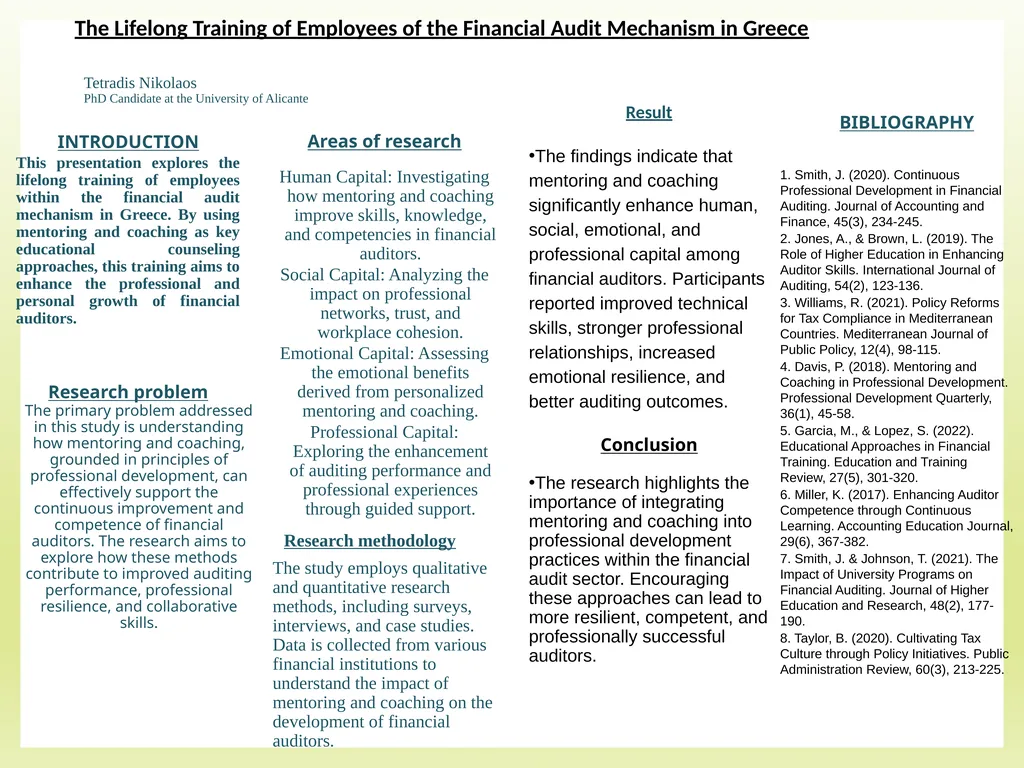
Author : trish-goza | Published Date : 2025-06-23
Description: This presentation explores the lifelong training of employees within the financial audit mechanism in Greece. By using mentoring and coaching as key educational counseling approaches, this training aims to enhance the professional andDownload Presentation The PPT/PDF document "" is the property of its rightful owner. Permission is granted to download and print the materials on this website for personal, non-commercial use only, and to display it on your personal computer provided you do not modify the materials and that you retain all copyright notices contained in the materials. By downloading content from our website, you accept the terms of this agreement.
Here is the link to download the presentation.
"This presentation explores the lifelong training"The content belongs to its owner. You may download and print it for personal use, without modification, and keep all copyright notices. By downloading, you agree to these terms.













